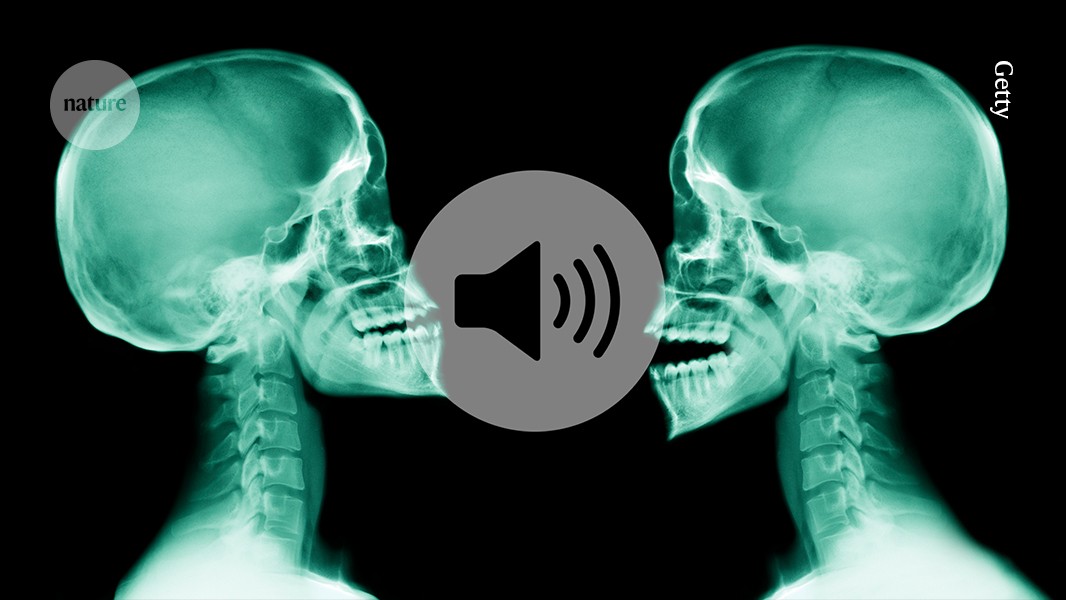Download the Nature Podcast 13 November 2024
In this episode:
00:46 The role of skull bone marrow in ageing
During ageing, bone marrow in the skull becomes an increasingly important site of blood-cell production. This is in stark contrast to most bones where the ability of marrow to make blood and immune cells declines. Studies in mice and humans showed that ageing results in skull bone-marrow expanding, and in mice this marrow was more resistant to inflammation and other hallmarks of ageing. The team behind the work hope by understanding this process better it may be possible to help organs become more resistant to ageing.
Research Article: Koh et al.
08:56 Research Highlights
Elderly big brown bats show remarkable resistance to age-related hearing loss, and why search-engine algorithms may not be the main driver steering people towards misinformation.
Research Highlight: No hearing aids needed: bats’ ears stay keen well into old age
Research Highlight: Don’t blame search engines for sending users to unreliable sites
11:38 How to make lead a useful material to date the Solar System
Researchers have overcome a major hurdle preventing the radioactive isotope lead-205 from being used as a ‘clock’ to date the age of the Solar System. Lead-205 is made in some stars and thanks to its half life of around 17 million years has been proposed as a potential way to date ancient astronomical processes. However, exactly how much 205Pb can escape a star were unclear, limiting its dating potential. Now, researchers have mimicked the conditions seen in stars to pin down how much 205Pb can escape into space, paving the way for its use as a clock.
Research Article: Leckenby et al.
19:51 Briefing Chat
How millions of Android smartphones were used to map Earth’s ionosphere, and the ethical implications of a virologist who treated her own cancer.
Nature: Google uses millions of smartphones to map the ionosphere
Nature: This scientist treated her own cancer with viruses she grew in the lab
Never miss an episode. Subscribe to the Nature Podcast on Apple Podcasts, Spotify, YouTube Music or your favourite podcast app. An RSS feed for the Nature Podcast is available too.


